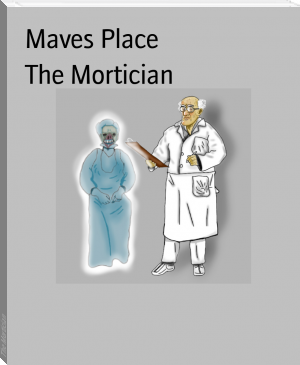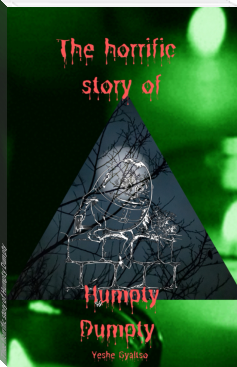Genre Horror. Page - 11

"Very useful things indeed they are, sir," said Mrs. Hall.
"And I'm very naturally anxious to get on with my inquiries."
"Of course, sir."
"My reason for coming to Iping," he proceeded, with a certain deliberation of manner, "was ... a desire for solitude. I do not wish to be disturbed in my work. In addition to my work, an accident--"
"I thought as much," said Mrs. Hall to herself.
"--necessitates a certain retirement. My eyes--are sometimes so weak and painful that I have to shut myself up in the dark for hours together. Lock myself up. Sometimes--now and then. Not at present, certainly. At such times the slightest disturbance, the entry of a stranger into the room, is a source of excruciating annoyance to me--it is well these things should be understood."
"Certainly, sir," said Mrs. Hall. "And if I might make so bold as to ask--"
"That I think, is all," said the stranger, with that quietly irresistible

assist him in counting his gold.
'I don't want your help,' she snapped; 'I can get them for myself.'
'I beg your pardon!' I hastened to reply.
'Were you asked to tea?' she demanded, tying an apron over her neat black frock, and standing with a spoonful of the leaf poised over the pot.
'I shall be glad to have a cup,' I answered.
'Were you asked?' she repeated.
'No,' I said, half smiling. 'You are the proper person to ask me.'
She flung the tea back, spoon and all, and resumed her chair in a pet; her forehead corrugated, and her red under-lip pushed out, like a child's ready to cry.
Meanwhile, the young man had slung on to his person a decidedly shabby upper garment, and, erecting himself before the blaze, looked down on me from the corner of his eyes, for all the world as if there were some mortal feud unavenged between us. I began to doubt whether he were a servant or not: his dress and speech were both rude, entirely devoid of the superiority observab

ll and opened up the lofty, snow-covered peak of a mountain, which seemed, as we wound on our serpentine way, to be right before us.
"Look! Isten szek!"--"God's seat!"--and he crossed himself reverently.
As we wound on our endless way, and the sun sank lower and lower behind us, the shadows of the evening began to creep round us. This was emphasized by the fact that the snowy mountain-top still held the sunset, and seemed to glow out with a delicate cool pink. Here and there we passed Cszeks and slovaks, all in picturesque attire, but I noticed that goitre was painfully prevalent. By the roadside were many crosses, and as we swept by, my companions all crossed themselves. Here and there was a peasant man or woman kneeling before a shrine, who did not even turn round as we approached, but seemed in the self-surrender of devotion to have neither eyes nor ears for the outer world. There were many things new to me. For instance, hay-ricks in the trees, and here and there very beautiful masses of wee

ould often say, Mrs. Bargrave, you are not only the best, but the only friend I have in the world, and no circumstances of life shall ever dissolve my friendship. They would often condole each other's adverse fortunes, and read together Drelincourt upon Death, and other good books; and so, like two Christian friends, they comforted each other under their sorrow.
Some time after, Mr. Veal's friends got him a place in the custom-house at Dover, which occasioned Mrs. Veal, by little and little, to fall off from her intimacy with Mrs. Bargrave, though there was never any such thing as a quarrel; but an indifferency came on by degrees, till at last Mrs. Bargrave had not seen her in two years and a half; though above a twelvemonth of the time Mrs. Bargrave hath been absent from Dover, and this last half year has been in Canterbury about two months of the time, dwelling in a house of her own.
In this house, on the 8th of September, 1705, she was sitting alone in the forenoon, thinking over her unfortun

nt to the west, but somewhat different from the parts lying eastward below South America - which we then thought to form a separate and smaller continent divided from the larger one by a frozen junction of Ross and Weddell Seas, though Byrd has since disproved the hypothesis.
In certain of the sandstones, dynamited and chiseled after boring revealed their nature, we found some highly interesting fossil markings and fragments; notably ferns, seaweeds, trilobites, crinoids, and such mollusks as linguellae and gastropods - all of which seemed of real significance in connection with the region's primordial history. There was also a queer triangular, striated marking, about a foot in greatest diameter, which Lake pieced together from three fragments of slate brought up from a deep-blasted aperture. These fragments came from a point to the westward, near the Queen Alexandra Range; and Lake, as a biologist, seemed to find their curious marking unusually puzzling and provocative, though to my geological eye it

ndscape in the Paris spring salon of 1926. And so numerous are the recorded troubles in insane asylums that only a miracle can have stopped the medical fraternity from noting strange parallelisms and drawing mystified conclusions. A weird bunch of cuttings, all told; and I can at this date scarcely envisage the callous rationalism with which I set them aside. But I was then convinced that young Wilcox had known of the older matters mentioned by the professor.
II. The Tale of Inspector Legrasse.
The older matters which had made the sculptor's dream and bas-relief so significant to my uncle formed the subject of the second half of his long manuscript. Once before, it appears, Professor Angell had seen the hellish outlines of the nameless monstrosity, puzzled over the unknown hieroglyphics, and heard the ominous syllables which can be rendered only as "Cthulhu" ; and all this in so stirring and horrible a connexion that it is small wonder he pursued young Wilcox with queries and demands for data.



